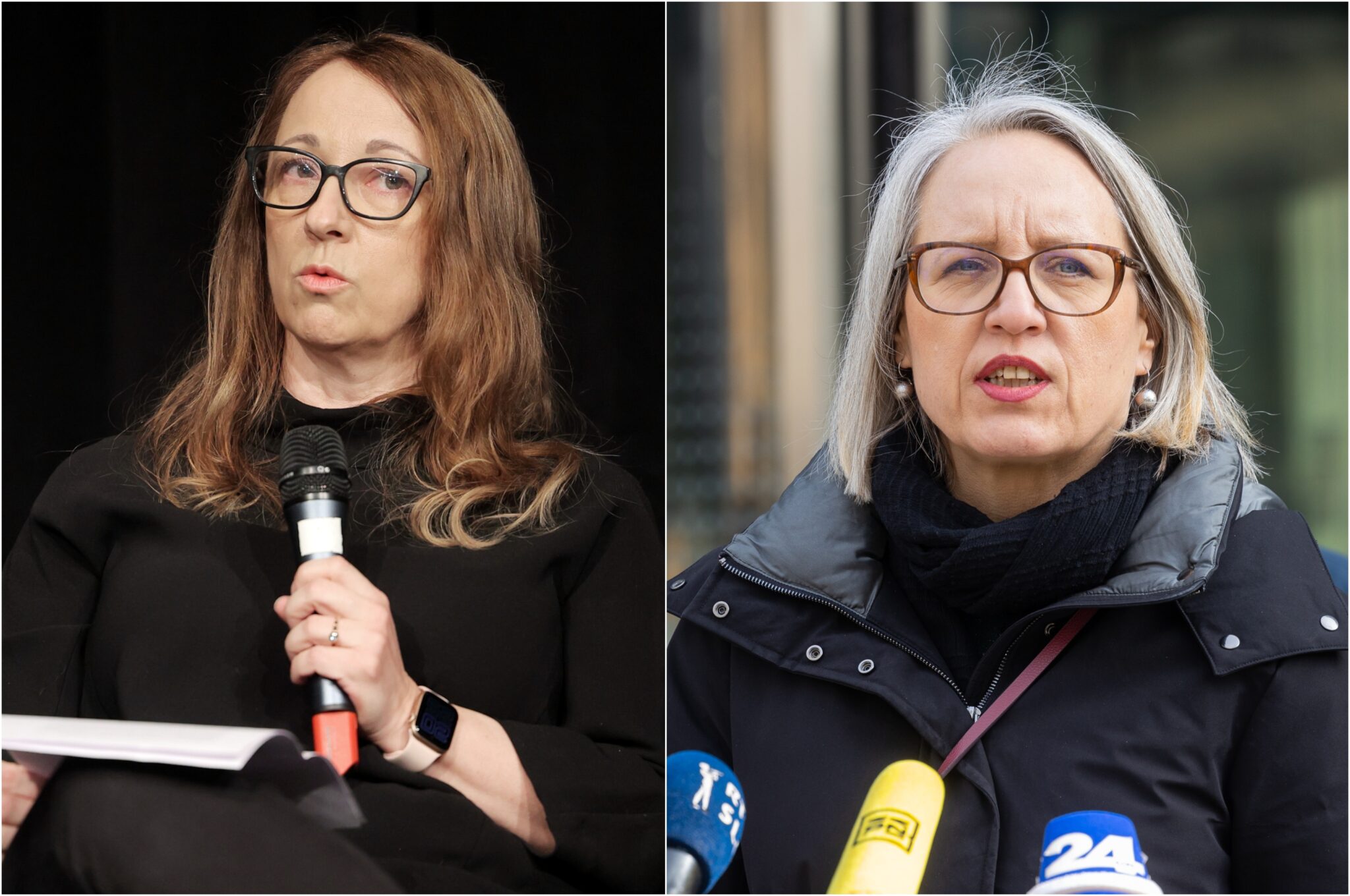By: C. R. (Nova24TV.si)
The “depoliticised” RTV Slovenia Council has confirmed Mirko Štular as the director of Radio Slovenia, Kaja Jakopič as the director of digital content, and the appointment of Ksenija Horvat as the director of Television, for which the CEO of RTVS believes is one of the “most reputable journalistic figures at RTVS”, but in reality, the public remembers her as a journalist with an extremely unprofessional and activist approach.
The management of Radiotelevizija Slovenija received the consent of the RTV Slovenia Council for the appointment of the mentioned candidates to the director positions after a repeat tender. Mirko Štular received unanimous support from 15 council members, as did Kaja Jakopič. Ksenija Horvat received 14 votes from council members, and one abstained. Horvat had been aspiring to the position of TV director since the Golob government took office but remained an advisor to the new RTVS management. Her promotion was allegedly hindered by the Member of the Gibanje Svoboda party, Mojca Pašek Šetinc, who has a longstanding aversion to Horvat from their previous working relationship.
According to reports from MMC RTV, Horvat stated that her “goal is an institutionally and editorially independent public broadcaster that will meet the expectations of viewers of all generations in the fields of politics, culture, economy, science, sports, and entertainment, and will be financially responsible to contributors.” However, based on her past, these are just words, and she meant to say that the programme will be “tailored” to left-wing activists who have taken control of the public broadcaster. Former Prime Minister Janez Janša responded to this by saying, “The goal of any depoliticisation is always the rule of like-minded individuals or DICTATORSHIP – @RTV_Slovenija”.
It is worth noting that Horvat was also part of the “left-wing” elite when discussing the Report on the State of the Rule of Law 2023 titled Media, Journalism, and Democracy. The presentation took place in Pritličje, a left-wing hub, and even included Barbara Rajgel, a lawyer and member of the Legal Network, which is a group of far-left lawyers who drafted the law on RTV Slovenia, through which the Golob government took control of RTV Slovenia and completely subordinated it.
We have previously reported that Horvat had been considered a serious candidate for the position of TV Slovenia director to replace the outgoing Uroš Urbanija. However, according to reports from Bojan Požar, her “strained” relationship with the Gibanje Svoboda MP, Mojca Pašek Šetinc, allegedly prevented her from obtaining the position. Now, one of the prominent advocates for a “depoliticised RTVS” seems to have secured her “reward”. She gained notoriety in the public eye due to an extramarital affair with her current partner, former programme director of TVS, Janez Lombergar, also known as Lombi. Because of this relationship, she dramatically left her former husband, social and political activist at Mladina, Peter Petrovčič.
It is important to remember that in the past, Horvat openly displayed biased political activism. One notable incident was when left-wing activist Tea Jarc verbally attacked former Prime Minister Janez Janša on Mount Triglav (Kredarica), and Horvat even supported this act of violence. Ksenija Horvat’s programme “Intervju” featured several prominent left-wing figures, including Dragan Petrovec, Janez Kocijančič, Mladen Dolar, Vesna Milek, Ali Žerdin, and Boris Bergant. Horvat is undoubtedly part of the core group of “party-line” journalists, and this was evident in her past choice of guests.
Horvat even encouraged violence on national television
What was particularly striking was the extremely unprofessional and activist approach of host Horvat when she put words into her guest’s mouth and even passed judgment on the incident at Mount Triglav, where Tea Jarc confronted Minister of the Interior Aleš Hojs and Prime Minister Janez Janša verbally. The incident had united the entire public, both on the left and the right, in viewing it as an inappropriate and highly tasteless response from the union activist Jarc and the cycling protesters. However, host Horvat saw it differently and claimed that she had engaged with them in a non-offensive and reasoned manner. She did admit to raising her voice a little too much. So, the new definition of the power of argument seems to be clear: shouting and stigmatising anyone you disagree with or do not politically align with. Even in sacred places like the Slovenian mountains. Such behaviour was once exhibited by fascists, Titoists, Chinese revolutionaries under Mao Zedong’s leadership, and others who were not proponents of democracy and tolerant discourse. Today, these aggressors seem to have support from the national broadcaster and certain extreme leaders.
We are now only waiting for the moment when Horvat will start her own action in the style of balcony revolutionaries. RTV Slovenia has indeed begun challenging with its extreme left-leaning behaviour and reporting, displaying uncritical support for the Golob government, and favouring other external actors, including Russia and the terrorist group Hamas. The action of not paying the RTV fee has started and is gaining momentum, and it does not seem like it will end anytime soon.
